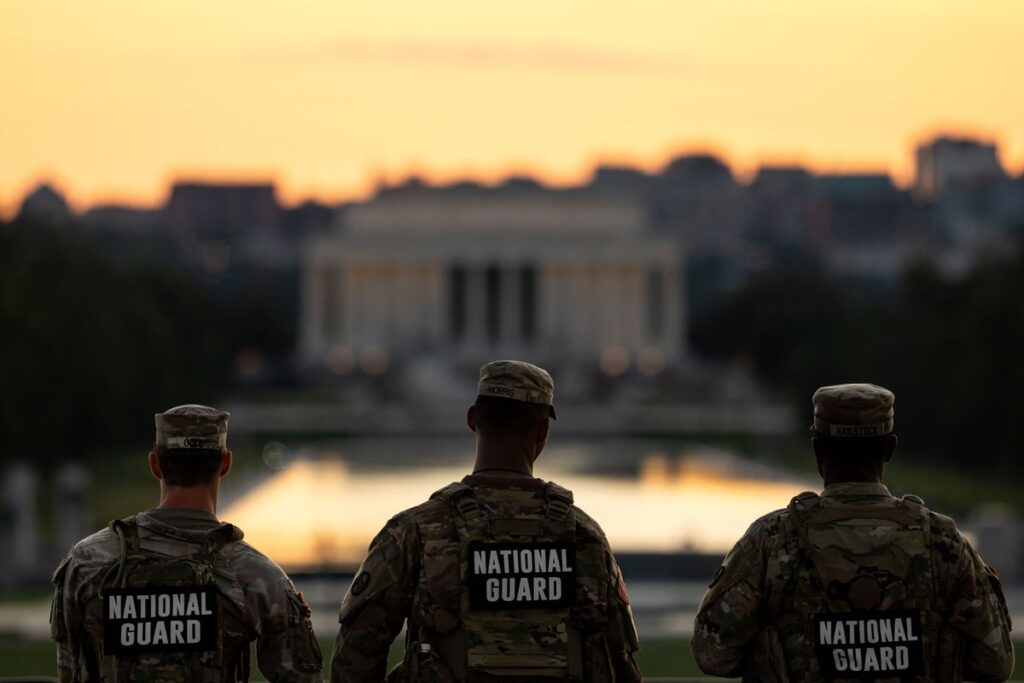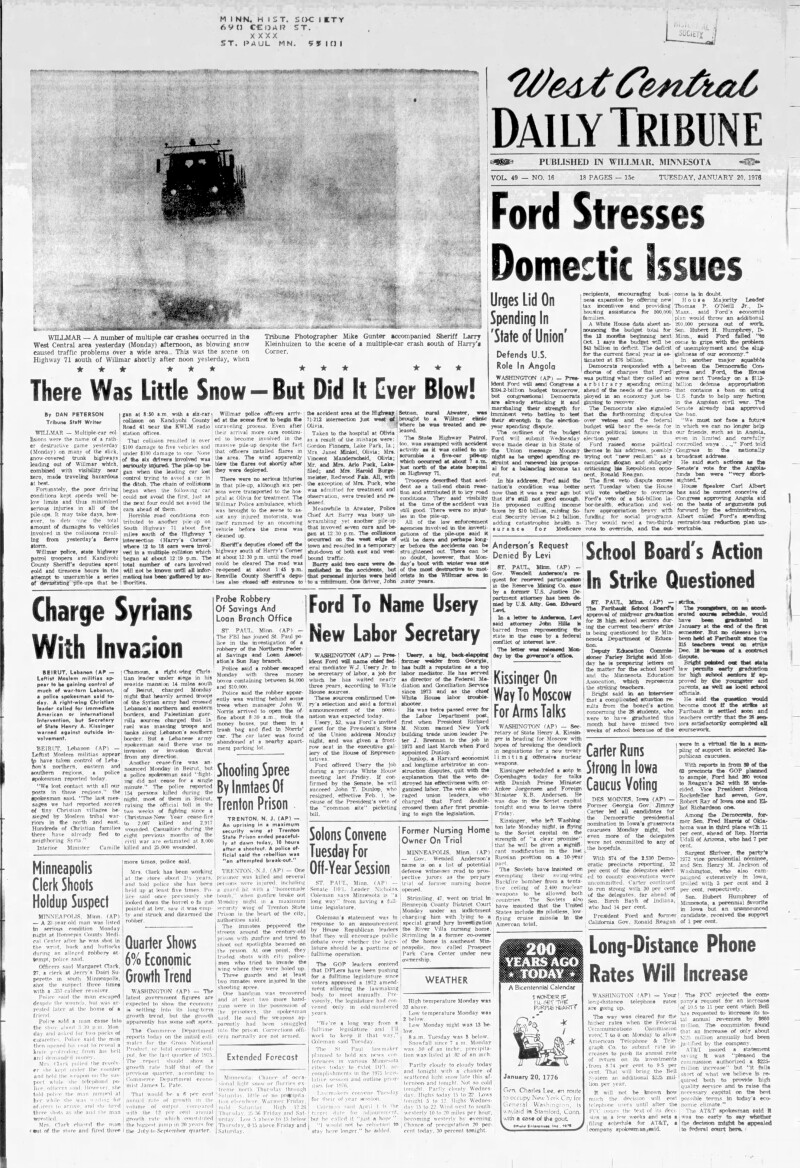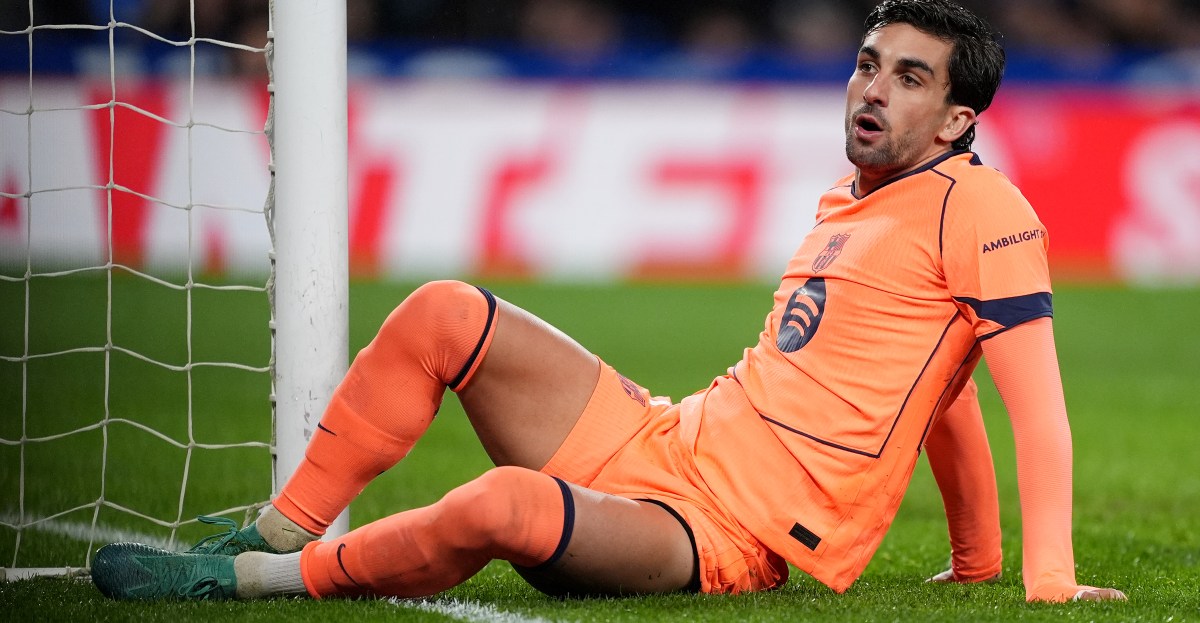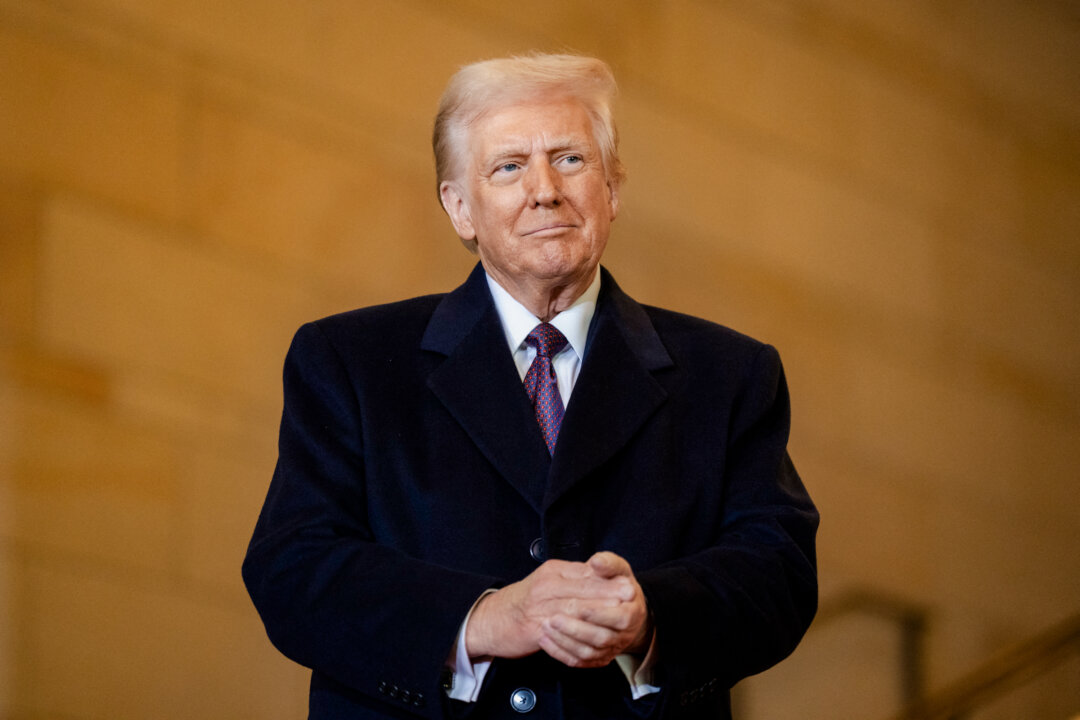
UPDATE: Washington D.C.’s attorney general, Brian Schwalb, has just filed a lawsuit against the Trump administration over the controversial deployment of the National Guard in the capital. This urgent development comes as Republicans in Congress are reportedly drafting legislation that could significantly increase federal control over the city.
The lawsuit, filed on July 27, 2023, accuses President Donald Trump and senior defense officials of violating the Posse Comitatus Act, which restricts military involvement in domestic law enforcement. Schwalb argues that the deployment of over 1,300 National Guard members to assist in crime control was an overreach, stating, “No American jurisdiction should be involuntarily subjected to military occupation.”
This legal action coincides with a push from the House Oversight Committee, where Republicans are drafting approximately 14 bills aimed at revising D.C.’s criminal code. One proposal seeks to transform the position of the city’s attorney general from an elected role to a political appointee, thereby granting the president more authority over D.C.’s judicial system.
The proposed changes are seen as part of a broader effort by Trump to exert federal influence over D.C. by declaring a “crime emergency” and deploying federal law enforcement. Critics argue that this federal intervention is unnecessary, as crime rates in D.C. have been declining in recent years. Schwalb’s lawsuit highlights the detrimental impacts of the National Guard’s presence, claiming it has harmed local businesses and tourism while inflaming tensions towards law enforcement.
In response, Abigail Jackson, a White House spokesperson, defended Trump’s actions, asserting, “President Trump is well within his lawful authority to deploy the National Guard in Washington D.C. to protect federal assets and assist law enforcement.” She labeled the lawsuit as a political maneuver that undermines the administration’s efforts to combat violent crime.
Among the proposed legislative measures are significant changes to juvenile crime policies, including lowering the age for trying juveniles as adults from 16 to 14 years. Other bills suggest eliminating D.C.’s Judicial Nomination Commission, which would reduce the city’s influence over judicial appointments. Additionally, proposals include fines for individuals sleeping outside and formalizing Trump’s graffiti removal program.
These bills are still in draft form and could evolve before the committee votes. A spokesperson for the House Oversight Committee emphasized that the bills are intended to ensure D.C. remains “safe and prosperous for all Americans.” A formal legislative meeting date is expected to be announced soon.
As Trump continues to advocate for stricter crime policies in major cities, this lawsuit and the GOP’s legislative efforts underscore a significant shift in the power dynamics between local governance and federal control. The implications of these developments could reshape the future of D.C.’s self-governance and its relationship with the federal government.
As the situation unfolds, all eyes will be on the court’s response to Schwalb’s lawsuit and the progress of the proposed legislation. The urgency of this matter speaks to the core of local autonomy and the ongoing debate over federal intervention in urban governance. Stay tuned for updates as this story develops.







